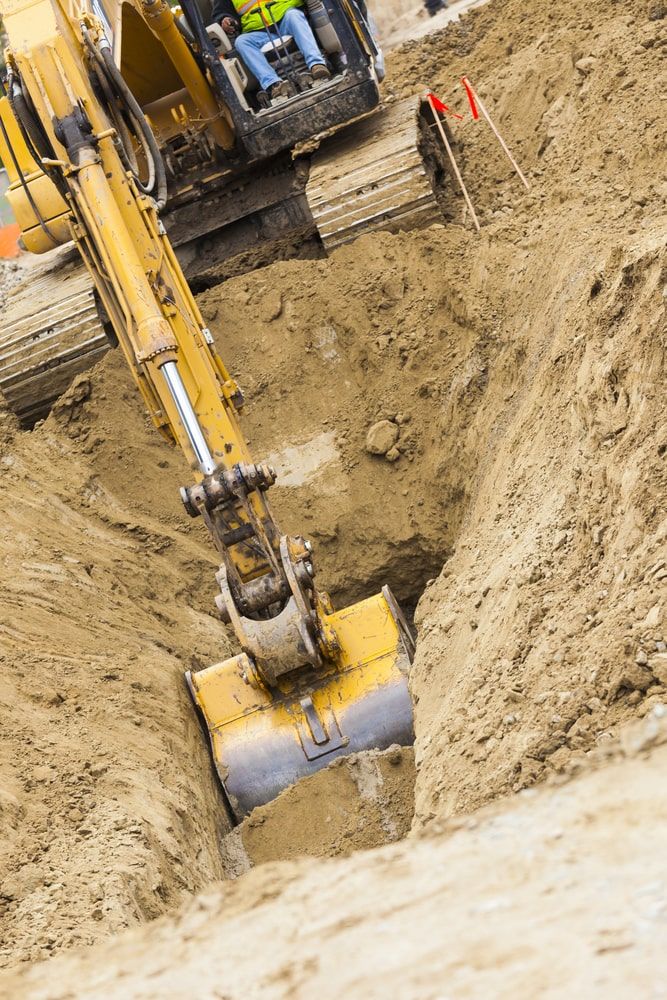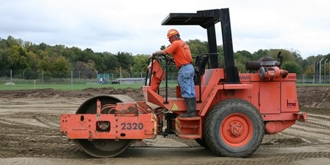Comprehensive Excavation Strategies: Grasping the Basics for Success
The mindful preparation, precise execution, and thorough interest to information called for in excavation projects demand a detailed strategy that includes various essential aspects. The true proficiency lies not merely in understanding these principles however in seamlessly incorporating them to browse the intricacies of excavation projects with finesse.
Recognizing Excavation Project Planning

The first stage of any type of excavation project is the preparation stage, where important decisions are made that can substantially influence the end result of the task. Understanding the task scope, spending plan, and timeline restraints is vital for producing a detailed excavation strategy that makes certain the task's success.
One key aspect of excavation project preparation is the development of a thorough timeline that describes the series of landmarks, target dates, and tasks. This timeline works as a roadmap for the project group, enabling them to track progress and make needed modifications to ensure the project remains on timetable. Furthermore, a well-defined budget that represents all expenditures, including equipment service, labor costs, and materials, is essential for staying clear of cost overruns and delays. By carefully considering all these aspects during the drawing board, excavation jobs can be carried out efficiently and properly, causing successful outcomes.
Dirt Evaluation and Website Analysis
Carrying out complete dirt analysis and website assessment is a crucial action in the preparation phase of any kind of excavation job. Dirt analysis includes establishing the composition, framework, and homes of the dirt at the excavation site. This details is crucial for comprehending the dirt's bearing capacity, wetness web content, and potential for erosion, which are key aspects in figuring out the excavation techniques and equipment required for the project.
Website assessment surpasses dirt analysis and incorporates a more comprehensive evaluation of the overall site problems. This assessment includes identifying any kind of prospective threats, such as underground utilities, environmental concerns, or unsteady surface, that could affect the excavation procedure. By completely examining the website, task supervisors can create reliable excavation methods that prioritize safety and security, effectiveness, and environmental protection.
Making use of innovative modern technologies like ground-penetrating radar, dirt tasting, and drone surveys can boost the precision and performance of dirt analysis and website examination. Spending time and resources in these preliminary actions can inevitably save time and avoid costly hold-ups or complications throughout the excavation procedure.
Devices Choice and Use
Effective excavation projects depend greatly on strategic tools selection and utilization to ensure optimal performance and productivity. Choosing the appropriate tools for the task is vital in maximizing effectiveness and decreasing downtime. Aspects such as the sort of soil, deepness of excavation, and project scope play a considerable role in establishing the most appropriate tools for the task handy.

In enhancement to choosing the suitable devices, proper application is vital to project success. Operators needs to be educated to handle the devices securely and effectively - excavating ohio. Regular maintenance checks and prompt repair services help protect against breakdowns and make sure constant efficiency throughout the project
Security Steps and Rules Conformity
In the realm of excavation projects, focusing on precaution and compliance with guidelines is vital to making sure a legitimately audio and safe operational environment. Safety and security steps include a variety of practices, including conducting extensive site evaluations, carrying out proper Get More Info signs and barriers, and offering adequate safety and security training for all employees associated with the excavation process. Adherence to guidelines, such as OSHA demands in the United States, guarantees that the excavation task fulfills the necessary standards to secure employees, bystanders, and the surrounding environment.

Monitoring Progress and Adjusting Approaches
Just how can predict supervisors properly track the development of excavation projects and adjust their strategies appropriately to optimize end results? Surveillance progress is essential for guaranteeing that excavation projects stay on track and meet deadlines.

Verdict
To conclude, understanding the fundamentals of extensive excavation approaches is crucial for the success of any type of job. By understanding project preparation, analyzing dirt and site problems, picking appropriate devices, complying with safety and security policies, and keeping track of progression, job managers can guarantee a smooth and reliable excavation procedure. Executing these strategies will certainly cause effective end results and decrease prospective risks or troubles during the excavation task.
The initial phase of any type of excavation project is the preparation stage, where crucial choices are made that can dramatically influence the outcome of the task. Comprehending the project budget plan, extent, and top article timeline restraints is crucial for creating a detailed excavation plan that makes certain the job's success.
How can predict managers successfully track the advancement of excavation tasks and adjust their methods appropriately to maximize outcomes? By very closely keeping an eye on development and being willing to adjust approaches, task supervisors can improve the overall success of excavation jobs.
By comprehending project preparation, analyzing soil and website conditions, choosing suitable equipment, complying with safety and security policies, and checking progress, task managers can ensure a my link reliable and smooth excavation process.